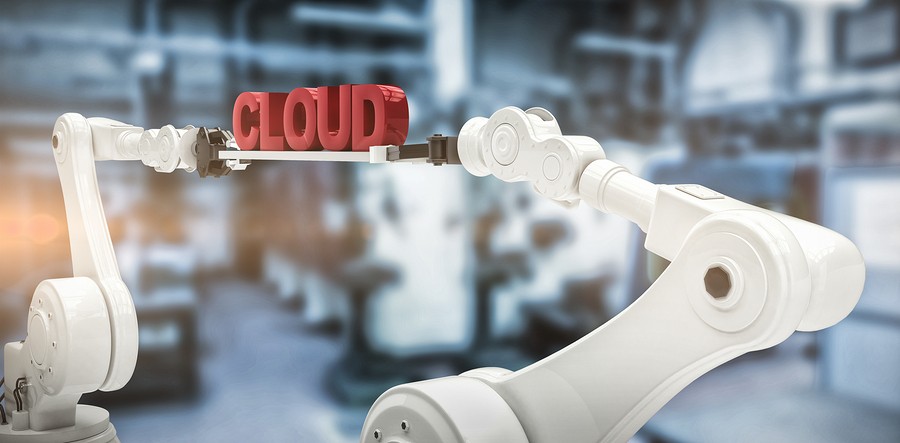3 Reasons Cloud-Based Maintenance Should Be Your First IIoT Investment

The push for Industry 4.0 isn’t slowing down. Manufacturers that can’t or won’t adapt are being displaced by those that will. This has driven many companies to dip their toe into the industrial internet of things (IIoT). The best place to start? A cloud-based maintenance system is proving to be a good entry point. It offers low risk, high reward, and plenty of opportunities for scalability.
What does cloud-based maintenance really mean?
“The cloud” is a major buzzword these days. It started as a simple definition for off-site data storage but has evolved into so much more. Today, the cloud encompasses everything from off-site data, to global accessibility and collaboration, to networking and integration. In short: The cloud is what connects us.
When we talk about a cloud-based computerized maintenance management system (CMMS), we’re talking about a maintenance system that benefits from all of the connectivity of the cloud:
- Being able to back up and store data safely off-site
- Integrating with various devices and programs
- Being accessible anywhere, at all times, by anyone
- Having the benefit of customization and personalization
Cloud computing has established itself across nearly every industry because these benefits are widely adaptable and scalable. As our world becomes increasingly globalized, the demand for better connectivity will only grow. Manufacturers especially benefit from this efficiency.

Why start with a cloud-based platform?
With the tech takeover and strong emergence of IIoT devices in manufacturing, a cloud-based CMMS platform is the perfect entry point into the next age of industry. Here are three reasons why:
- It serves as the basis for scaling up to Industry 4.0. Every IIoT device on the market today and every future innovation to follow will be cloud-enabled. With all these devices soon making their way into factories, you’ll need a system to network them together, manage them, and communicate with them. Building the framework for the factory of the future starts with a cloud-based infrastructure.
- A cloud-based maintenance platform creates an ecosystem you can become familiar with and train staff on right from the get-go. As techs become more familiar with the IIoT and as technologies expand, you’ll have the benefit of a familiar system on your side. As your factory becomes smarter and scales up, everything will run through a system your people understand, eliminating a steep learning curve later on.
- The cloud enables universality and accessibility, as well as smarter planning and oversight. Being able to immediately quantify your actions and see patterns from robust software makes all the difference in shaping a better maintenance environment. Building in tasks, checklists, fail-safe mechanisms, and more and having these implements available any time, any place, by any person brings tremendous efficiency to even the most successful maintenance programs. It’s an immediate return on investment.
These three reasons alone make a cloud-based CMMS a clear choice for manufacturers seeking a relatively risk-free entry into the smarter Industry 4.0 environment.
What’s holding you back?
Every new paradigm shift comes with reservations. A cloud-based CMMS platform is no exception. Keep these important variables in mind before making the switch:
 A cloud-based system will displace a legacy maintenance management system. The transition may be a hard one — and could result in problems if not undertaken carefully.
A cloud-based system will displace a legacy maintenance management system. The transition may be a hard one — and could result in problems if not undertaken carefully.- Cybersecurity is still a major concern. A report from 2017 names manufacturers as “most susceptible to cyber threats” in the modern age.
- The learning curve can be a big one for training employees on a new CMMS. The cost of training may even rival the cost of a software upgrade!
These obstacles are like any others: They need consideration but aren’t insurmountable. If you know you need to make the shift toward smarter tech, a cloud-based CMMS is the place to start. Just keep these variables in mind as you evaluate your options.